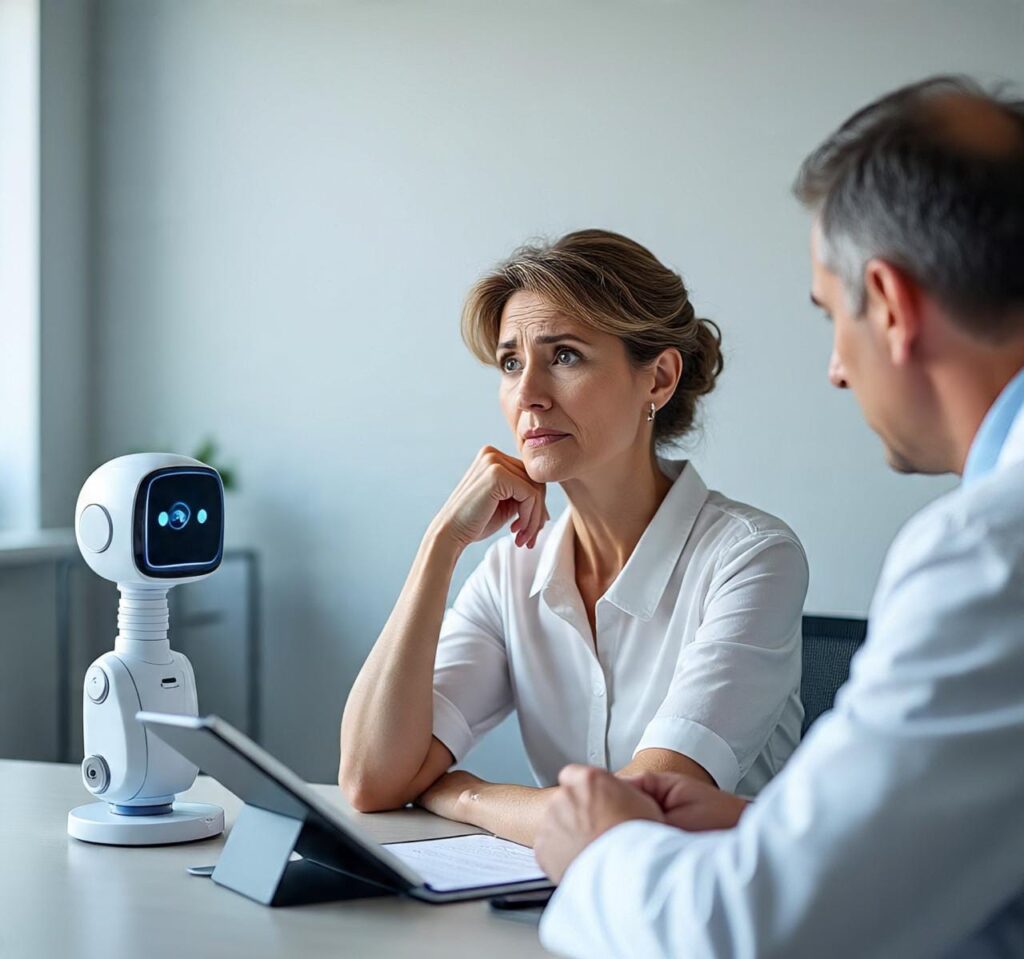
Sitting on the uncomfortable paper of the examination bed at the doctor’s office for an extended period, you eagerly await your family doctor’s arrival to discuss the reason for your appointment. However, upon beginning to explain yourself, you notice that the doctor is engrossed in typing on their computer screen, seldom making eye contact. While they jot down notes as you speak, this lack of interaction creates a sense of detachment. The potential solution lies in the realm of artificial intelligence.
According to a report by The Philadelphia Inquirer, physicians are now turning to ambient listening and AI scribes to handle note-taking duties during medical consultations, allowing them to focus more on engaging with their patients. Several studies published in the JAMA Network this year (in February, August, and October) have emphasized the benefits of utilizing such ambient AI scribes in medical practice. Despite some concerns raised by experts.
Bracken Babula, a primary care physician at Jefferson Health, and Dina Francesca Capalongo, an internal medicine specialist at Penn Medicine, have shared how they seek their patients’ consent before using AI scribes to assist in note-taking. This tool records conversations and transforms them into well-organized notes. Consequently, it has enabled these practitioners to improve their interactions during appointments by enhancing engagement and maintaining eye contact with patients.
These positive outcomes are supported by research findings. A recent study involving 46 participants demonstrated that employing ambient scribe tools leads to enhanced clinician efficiency, reduced mental strain associated with documentation tasks, and increased patient engagement.
Drawing from personal experience as a former journalist heavily reliant on note-taking, I can attest to the incredible convenience offered by such technological aids. Initially struggling to balance typing responses while maintaining eye contact during interviews, my work transformed when I discovered efficient transcription tools. By recording conversations with permission and subsequent transcription into text files for reference during article writing, I found myself more mentally present to ask spontaneous questions and respond thoughtfully.
However, a critical distinction exists between transcription and note-taking processes since the latter necessitates discerning essential information worth retaining. While errors in transcriptions can be rectified through corrections in journalism, inaccuracies recorded by AI scribes in medical contexts could potentially lead to severe consequences for patients if dosage details are incorrect. Moreover, challenges may arise with foreign accents and issues concerning privacy and medical malpractice cases as outlined in The Philadelphia Inquirer. Healthcare systems will need to address concerns related to patient consent regarding recordings.
I. Glenn Cohen, a bioethicist at Harvard Law School highlighted the importance of healthcare systems cautiously adopting these technologies and implementing effective oversight mechanisms for safe integration into medical practice. The future acceptance of AI applications in clinical settings will depend largely on the regulatory frameworks established by healthcare institutions.
Undoubtedly, many individuals like myself would have greatly appreciated access to such innovative tools during lengthy university lectures.
